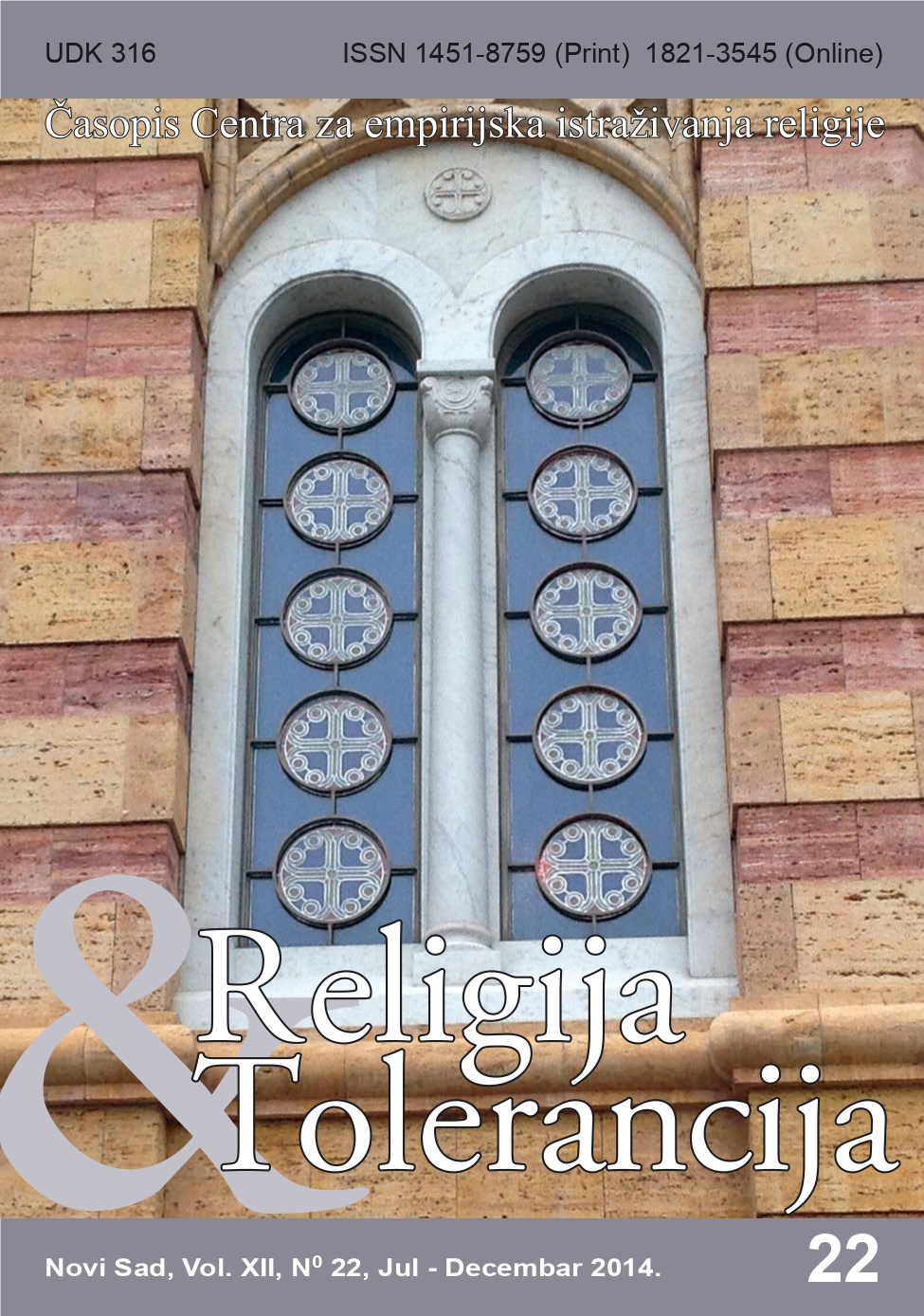BYZANTINE CHRISTIANITY AND LOCAL IDENTITIES: MODERN TRANSFORMATIONS OF THE HISTORICAL FORMES
BYZANTINE CHRISTIANITY AND LOCAL IDENTITIES: MODERN TRANSFORMATIONS OF THE HISTORICAL FORMES
Author(s): Nonka BogomilovaSubject(s): Christian Theology and Religion, Theology and Religion, History of Religion
Published by: Centar za empirijska istraživanja religije (CEIR)
Keywords: Byzantine Christianity; state; religion; identity
Summary/Abstract: In the first part of this paper are examined certain basic aspects of the Byzantine Christianity as an imperial political religion, a synthesis between the sacral and institutions (the Empire, the Emperor); a synthesis that has both theological and social-political dimensions. Discussed are certain specific features of the relations between the Empire and the periphery, relations in the framework of which the Christian acculturation of the latter took place. The analyses and ideas of the well-known specialists in this field, D. Obolensky and J. Meyendorff, have been used, as well as of other contemporary authors. The second part of the paper examines the basic models by which the “nationalization” of Byzantine Christianity in the Balkans was effectuated and the importance of this nationalization for the processes of state formation and the sacralization of political rule. In this period and at this stage were set many of the stereotypes and archetypes of the relationship between state and religion, which in later periods were preserved in some countries, and transformed in others. On the basis of this analysis, a critical commentary is made on the thesis of A. Toynbee, and especially on that of S. Huntington, regarding the specific character of the so-called Orthodox Civilization.
Journal: Religija i tolerancija
- Issue Year: 12/2014
- Issue No: 22
- Page Range: 229-246
- Page Count: 18
- Language: English

